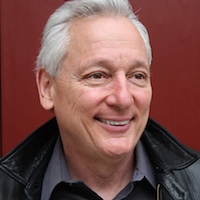As a teacher, coach and trainer, one of my jobs is to help people discover powerful distinctions that create leverage for positive change, growth or even transformation in their lives.
Such distinctions are often called training distinctions or life distinctions.
One of the distinctions that has created the most leverage for positive transformation in my own life, and I believe for many others, is “Circumstances Are Neutral.”
This idea allowed me to transform a long prison sentence for drug trafficking, into a time of considerable personal growth and spiritual deepening—rather then a debilitating journey full of bitterness, anger and despair—what serious prison time is for so many.
This distinction allowed me to embrace the situation, own my part in creating it and accept all the harm I had caused, without veering into either self-protective denial and blaming others, or into destructive self-blame and shaming.
Instead, I was able to employ the tools of meditation and the teachings of the Buddhist path to see how I created this circumstance, and what it was going to take to transform it and repair the harm I had caused.
My life shifted to focusing on others and serving my prison community, instead of getting caught in anger, shame and blame, existing in my prison environment.
Incarceration is by definition a limitation of one’s choices, but choices still abound.
Employing the distinction Circumstances Are Neutral, I chose to embrace the fact of my long term incarceration, and focus on the creative and generative choices I had, rather than the limitations I faced.
Circumstances Are Neutral is not a value statement about the circumstances themselves, but rather an affirmation of choice and the human spirit.
Some circumstances feel less neutral than others. Some circumstances are tragic, horrific, unspeakable and criminal. If we find ourselves in such dire circumstances, the only way to release ourselves from victimization, is to look at our choices.
Our choice may be to seek the support, empathy and healing we need. Our choice may be to seek justice in some form. Our choice may be to help prevent such a thing from happening to others. Our choice may simply be to not give up. It may be extremely difficult to shift our focus from hurt, devastation or worse to choice, but at some point reconnecting with some element of choice is our only way out.
Circumstances Are Neutral is not about self-blame or blame at all; it is about ownership and choice vehicles to self-empowerment and freedom. Circumstances Are Neutral is also not a new idea, as we can see from the following quote:
“If you are distressed by anything external, the pain its not really in the thing itself but in your own estimate of it. And this you have control over.” ~ Marcus Aurelius
Of course, most of the garden variety circumstances we face day to day are a lot more neutral feeling than the kind of dire circumstances I was referencing above, and yet, we mostly don’t experience them as neutral, do we?
Our preferential mind kicks in with even the most insignificant of circumstances. We might believe that our feelings are caused by, or attached to, the circumstances themselves, rather than our perception of needs being met, and the meaning or significance we give to the circumstances we encounter.
How liberating would it be to begin to discover the neutrality, and thus, the choices available to us in the circumstances we face day in and day out, rather than being imprisoned by our conditioned responses and habitual reactions?
If the more extreme circumstances you can imagine, or may have unfortunately or tragically experienced, are still getting in the way of this life distinction landing for you or becoming useful for you, consider the experience of Viktor Frankl, author of Man’s Search for Meaning, an Austrian psychiatrist of Jewish decent who survived Auschwitz, perhaps the most horrific death camp of the Nazi holocaust.
Frankl lost most or all of his family in the holocaust. Imprisoned in the work camp at Auschwitz-Birkenau where the vast majority of prisoners quickly died from starvation, exhaustion, the elements, disease and despair, Frankl sought both to survive and to understand what distinguished those who survived these horrific conditions. For the most part, he saw that the survivors were able to create some sense of future, something to live for, even if it was only to one day tell the truth of what had happened there in the hopes of preventing future holocausts.
He also discovered that even in the most horrific conditions one can imagine, starving, emaciated, stripped of any shred of human dignity and possibly facing the barrel of a gun, we still have choice … that choice is over the attitude or mind set we bring to the situation—how we choose to meet and respond to a circumstance.
Of course such choice is earned in a sense. If we have habitually responded with anger and bitterness this is likely to continue, whereas if we have valued responding to life’s tough circumstances with patience, love and compassion the result will likely be different. At any rate, we have choice and when better to begin exercising choice and freedom than now.
“Many times we think it’s the circumstances that are controlling our destiny, but it’s really not the circumstances… It is our response to those circumstances that create our destiny.”
~ Fleet Maull
~
~Love elephant and want to go steady?
Sign up for our (curated) daily and weekly newsletters!
Editor: Travis May
Photo: YouTube Still











Read 0 comments and reply